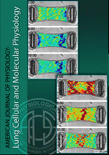
GENESIS
Scope & Guideline
Igniting Innovation in Cell Biology and Beyond
Introduction
Aims and Scopes
- Vascular Biology and Angiogenesis:
The journal extensively covers the mechanisms of vascular development and the processes of angiogenesis, including the signaling pathways and cellular interactions that govern these phenomena. - Endothelial Cell Function and Dysfunction:
Research on the normal and pathological functions of endothelial cells is a core focus, including studies on endothelial barrier integrity, inflammation, and responses to various stimuli. - Molecular Mechanisms in Vascular Diseases:
The journal highlights the molecular underpinnings of vascular diseases, such as hereditary hemorrhagic telangiectasia, diabetic retinopathy, and the effects of systemic diseases like COVID-19 on endothelial health. - Innovative Therapeutic Approaches:
There is a consistent emphasis on novel therapeutic strategies targeting the vascular system, including gene therapies, monoclonal antibodies, and small molecules aimed at modulating angiogenesis and endothelial function. - Emerging Technologies in Vascular Research:
The journal promotes studies utilizing cutting-edge technologies, such as organ-on-a-chip models, CRISPR gene editing, and advanced imaging techniques, to explore vascular biology.
Trending and Emerging
- Impact of Systemic Conditions on Endothelial Health:
Increasing attention is being paid to how systemic diseases, particularly COVID-19, affect endothelial function, highlighting the importance of endothelial health in overall disease outcomes. - Role of Extracellular Vesicles in Angiogenesis:
Research is emerging on the role of extracellular vesicles in mediating communication between cells in the vascular niche, influencing angiogenesis and vascular remodeling. - Endothelial Cell Plasticity:
There is a growing interest in the plasticity of endothelial cells, including their ability to adapt to varying physiological and pathological conditions, which is crucial for understanding vascular responses. - Therapeutic Targeting of Angiogenesis:
A significant trend is the exploration of novel therapeutic targets within angiogenic pathways, including the development of monoclonal antibodies and small molecules aimed at specific vascular mediators. - Integration of Genomics and Vascular Biology:
The integration of genomic data with vascular biology is becoming increasingly prominent, with studies focusing on genetic predispositions to vascular diseases and the implications of genetic mutations on endothelial function.
Declining or Waning
- Traditional Angiogenesis Models:
There is a noticeable reduction in studies utilizing classical in vitro models of angiogenesis, such as Matrigel assays, as researchers increasingly turn to more sophisticated systems that better mimic physiological conditions. - Basic Vascular Anatomy Studies:
Research focused solely on the descriptive aspects of vascular anatomy without functional implications is becoming less frequent, as the field moves towards understanding the dynamic processes involved in vascular function and pathology. - Isolated Disease Studies:
There is a waning interest in studies that focus exclusively on single diseases without considering the broader implications on vascular biology, as integrated approaches are gaining favor.
Similar Journals

BIOLOGICAL PROCEDURES ONLINE
Catalyzing Discoveries in Biochemistry and Molecular Science.BIOLOGICAL PROCEDURES ONLINE is a premier open-access journal published by BMC, dedicated to advancing the fields of biochemistry, genetics, and molecular biology. With its electronic ISSN 1480-9222 and a strong commitment to accessibility since 2009, this journal provides a vital platform for researchers and scholars to disseminate their findings and foster collaboration within the scientific community. Based in the United Kingdom, this journal has garnered an impressive reputation, achieving Q1 status in the 2023 category rankings, with notable inclusion in the Scopus rankings, placing it in the 86th percentile among 221 peer journals in the general biochemistry, genetics, and molecular biology domain. It covers a broad range of topics, ensuring coverage of the latest advancements and methodologies in biological procedures, making it an essential resource for academics, practitioners, and students alike. Researchers are encouraged to submit their innovative work and contribute to the ongoing dialogue in this dynamic and ever-evolving field.

DNA AND CELL BIOLOGY
Empowering Scientific Progress Through Rigorous ResearchDNA AND CELL BIOLOGY, published by Mary Ann Liebert, Inc, is a distinguished journal in the realms of cell biology, genetics, and molecular biology, holding a notable position in its Q3 and Q2 quartile rankings across multiple academic categories as of 2023. With an ISSN of 1044-5498 and an E-ISSN of 1557-7430, this journal has been a pivotal platform for the dissemination of cutting-edge research since its inception in 1990, extending its coverage through 2024. Situated in the United States, the journal offers high-quality peer-reviewed articles, exploring significant advancements in biological sciences while fostering interdisciplinary collaborations within the research community. Though it currently does not offer open access, subscribed institutions and individual readers benefit from its rich repository of knowledge. The journal's rigorous standards and impactful content make it an essential resource for researchers, professionals, and students alike, aiming to stay at the forefront of discoveries influencing DNA and cellular dynamics.

VASCULAR PHARMACOLOGY
Pioneering research for a healthier vascular future.Vascular Pharmacology, published by Elsevier Science Inc, is a leading journal in the fields of pharmacology and molecular medicine, dedicated to advancing our understanding of vascular biology and therapeutic interventions. With an impressive impact factor reflecting its significant contribution to the scientific community, this journal seeks to publish ground-breaking research that elucidates the molecular mechanisms underlying vascular function and disease, as well as the pharmacological impact of new therapeutic agents. The journal operates under a dual access model, allowing for both subscription and open access options, ensuring that vital research is accessible to a wide audience. As of 2023, it holds a prestigious position in the Q1 category for pharmacology and ranks well in molecular medicine and physiology, reflecting its high quality and relevance. Whether you are a researcher, clinician, or student, Vascular Pharmacology serves as an essential resource to stay at the forefront of cardiovascular pharmacotherapy and vascular biology.

Cell Discovery
Pioneering Discoveries in Molecular and Genetic SciencesCell Discovery, published by SPRINGERNATURE, is a premier open access journal in the dynamic fields of Biochemistry, Cell Biology, Genetics, and Molecular Biology. Since its inception in 2015, this journal has established itself as a key platform for disseminating high-impact research and is recognized with a Q1 ranking across all its core categories for the year 2023. With its remarkable Scopus rankings—7th in Genetics, 9th in Biochemistry, 13th in Molecular Biology, and 15th in Cell Biology—Cell Discovery positions itself among the elite journals in life sciences, showcasing the most innovative breakthroughs and comprehensive reviews. Based in the United Kingdom, this journal operates under an open access model, ensuring that groundbreaking discoveries are readily available to researchers, professionals, and students around the globe. With a commitment to advancing scientific knowledge, Cell Discovery welcomes contributions that push the frontiers of our understanding in cellular and genetic sciences.

AMERICAN JOURNAL OF PHYSIOLOGY-LUNG CELLULAR AND MOLECULAR PHYSIOLOGY
Shaping the landscape of lung physiology research.AMERICAN JOURNAL OF PHYSIOLOGY-LUNG CELLULAR AND MOLECULAR PHYSIOLOGY, published by the American Physiological Society, stands as a prominent peer-reviewed journal dedicated to advancing the field of lung cellular and molecular physiology. With an impressive impact factor, the journal serves as a crucial platform for disseminating high-quality research focused on the intricate mechanisms underlying pulmonary function and disease. Established in 1989, this journal has consistently ranked within the top quartiles across various categories, including Q1 in Physiology and Pulmonary and Respiratory Medicine, highlighting its significance in the scientific community. The journal covers a wide scope of topics pertinent to cell biology and physiology, catering to the needs of researchers, professionals, and students seeking to explore and contribute to this vital area of study. Although currently not offering open access, it provides comprehensive access options for subscribers, ensuring that vital research is communicated effectively to the global scientific community. With a commitment to fostering innovation and inspiring future studies, the AMERICAN JOURNAL OF PHYSIOLOGY-LUNG CELLULAR AND MOLECULAR PHYSIOLOGY remains an essential resource for those engaged in lung research.

INTERNATIONAL JOURNAL OF BIOCHEMISTRY & CELL BIOLOGY
Bridging Research and Innovation in Life SciencesThe International Journal of Biochemistry & Cell Biology, published by Pergamon-Elsevier Science Ltd, stands as a pivotal resource in the fields of biochemistry and cell biology. With an ISSN of 1357-2725 and an E-ISSN of 1878-5875, this prestigious journal has been a key platform for disseminating cutting-edge research since its inception in 1995. The journal currently holds an impressive Q1 ranking in Biochemistry and a Q2 ranking in Cell Biology for the year 2023, reflecting its commitment to high-quality research and its influence within the scientific community. With a significant Scopus ranking of 94/438 in Biochemistry and 96/285 in Cell Biology, the journal plays a crucial role in advancing knowledge and fostering innovative approaches in these dynamic fields. Though it is not an open-access journal, the International Journal of Biochemistry & Cell Biology remains accessible to a wide audience, making it a vital resource for researchers, professionals, and students alike, who are eager to explore and contribute to the ongoing advancements in biochemistry and cell biology.

MOLECULAR AND CELLULAR PROBES
Exploring the Frontiers of Cell and Molecular BiologyMOLECULAR AND CELLULAR PROBES, published by Academic Press Ltd - Elsevier Science Ltd, stands as a prominent journal at the intersection of cell and molecular biology. With an ISSN of 0890-8508 and an E-ISSN of 1096-1194, this journal has consistently contributed to the scientific discourse since its inception in 1987, converging its scholarly content through to 2024. As a member of Q3 in both Cell Biology and Molecular Biology categories, it provides a platform for innovative research and critical insights into cellular mechanisms, signaling pathways, and molecular interactions. Its Scopus rankings position it within the top half of its categories, fostering a vibrant academic community that supports the exploration and advancement of biochemistry, genetics, and molecular biology. Although it does not currently offer Open Access, the high-quality peer-reviewed articles published in MOLECULAR AND CELLULAR PROBES are invaluable resources for researchers, professionals, and students who seek to stay at the forefront of breakthroughs in these essential fields.

JOURNAL OF VASCULAR RESEARCH
Exploring the frontiers of cardiovascular science.Welcome to the JOURNAL OF VASCULAR RESEARCH, a reputable academic journal published by KARGER that has been a cornerstone of vascular research since 1964. With an ISSN of 1018-1172 and an E-ISSN of 1423-0135, this journal plays a vital role in disseminating cutting-edge research in the fields of Cardiology and Cardiovascular Medicine and Physiology. Currently categorized in the Q3 quartile for both disciplines, it ranks as #179 in Cardiology and #131 in Physiology according to Scopus, showcasing its significant contribution to the scientific community. Although the journal operates on a subscription basis, it strives to provide accessible content that informs and inspires researchers, professionals, and students alike. As the journal looks forward to its convergence in 2024, it continues to uphold its mission of advancing knowledge, fostering innovation, and encouraging collaboration within the dynamic realm of vascular research.

CELL BIOLOGY INTERNATIONAL
Illuminating Cellular Processes for a Healthier TomorrowCELL BIOLOGY INTERNATIONAL is a prestigious academic journal dedicated to the rapidly evolving field of cell biology, publishing high-quality research aimed at understanding cellular processes and their implications in various biological contexts. Published by Wiley, this journal has established its relevance with an H-Index that reflects its robust citation impact and a commendable Scopus Rank of #111 out of 285 in the field of Biochemistry, Genetics, and Molecular Biology, positioning it in the 61st percentile. Although it operates under a traditional subscription model, its influential insights are crucial for researchers, professionals, and students alike who are seeking cutting-edge developments in cellular mechanisms and their applications in medicine. The journal spans contributions dating back to 1993, providing a rich archive of knowledge that continues to shape the discourse within the scientific community. With a strong category ranking of Q3 in Cell Biology and Q2 in Medicine (miscellaneous) as of 2023, CELL BIOLOGY INTERNATIONAL stands as a reliable platform for disseminating transformative science in the cellular domain.

Cell Stem Cell
Advancing the Frontiers of Stem Cell ResearchCell Stem Cell, published by CELL PRESS, is a premier journal at the forefront of cellular biology, genetics, and molecular medicine. With an esteemed impact factor and recognized as a Q1 journal in multiple categories including Cell Biology, Genetics, and Molecular Medicine, it offers researchers, professionals, and students rigorous, peer-reviewed articles that shape the future of stem cell research and regenerative medicine. Located in Cambridge, MA, this journal has become an invaluable resource since its inception in 2007 and is committed to disseminating groundbreaking findings that drive innovation and understanding in these critical fields. By consistently ranking within the top percentile of its categories in Scopus, Cell Stem Cell remains an essential platform for scholarly communication, fostering collaboration among leading scientists worldwide. Although the journal does not currently offer open access options, its comprehensive insights are pivotal for anyone engaged in the study of stem cells and their applications.